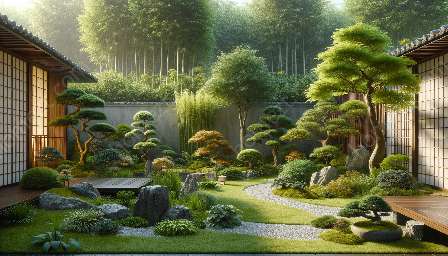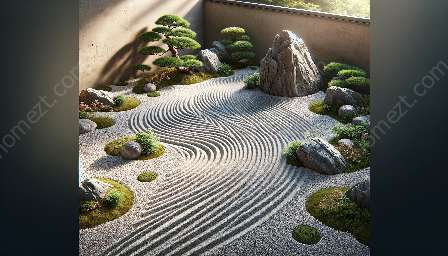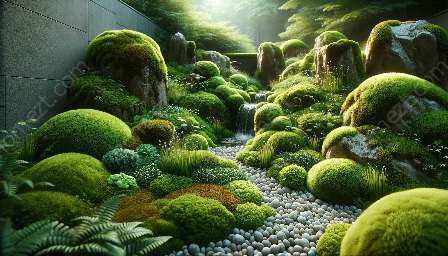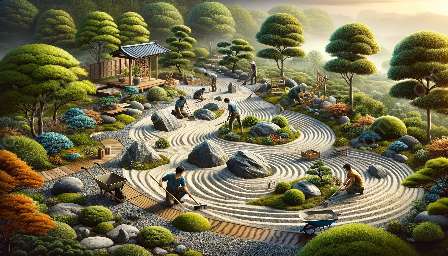Zen gardens are an integral part of Japanese culture and are designed with profound imagery and meanings that reflect the principles of Zen Buddhism. These serene and minimalist landscapes are filled with symbolism, evoking a sense of contemplation, tranquility, and harmony with nature. From the carefully placed rocks to the raked gravel, each element serves a symbolic purpose, inviting visitors to connect with their inner selves and the natural world. Let's delve into the rich symbolism of Zen gardens and discover the spiritual significance behind their elements.
Rocks
Rocks are one of the central elements in Zen gardens, often arranged in carefully composed groupings. Each rock represents a unique aspect of nature, such as mountains, islands, or animals. These formations symbolize the impermanence of existence, encouraging meditation on the ephemerality of life and the ever-changing nature of the universe.
Raked Gravel
The meticulously raked gravel in Zen gardens is not just an aesthetic feature but also embodies deeper symbolism. The patterns created in the gravel represent the fluidity of water and waves, inspiring introspection and tranquility. The act of raking the gravel is meditative, offering a sense of mindfulness and focus as the lines are carefully drawn and erased, symbolizing the transient nature of human experiences.
Bridges and Pathways
Often, Zen gardens feature bridges and pathways that wind through the landscape. These structures symbolize the journey of life, encouraging visitors to contemplate their own paths and the choices they make. The deliberate design of these paths promotes a sense of mindfulness and intentionality, guiding individuals to slow down and appreciate each step along the way.
Water Features
Whether it's a small pond, a flowing stream, or a tranquil waterfall, water is a prominent element in Zen gardens. Water represents the ebb and flow of life, embodying the notion of impermanence and change. The rhythmic sound of flowing water cultivates a sense of calm and introspection, inviting visitors to let go of their worries and be present in the moment.
Plants and Trees
Every plant and tree in a Zen garden is carefully selected and placed to convey specific meanings. Pine trees, for instance, symbolize resilience and longevity, while bamboo represents flexibility and strength. These natural elements remind visitors of the interconnectedness of all living beings and the importance of harmony with the environment.
Sand and Moss
The use of sand and moss in Zen gardens illustrates the simplicity and humility valued in Zen philosophy. Both sand and moss require minimal maintenance and symbolize the beauty that arises from modesty and simplicity. These elements also encourage visitors to embrace the idea of finding tranquility in simplicity and appreciating the beauty of the present moment.
Conclusion
Exploring the symbolism in Zen gardens provides a deeper understanding of the spiritual and philosophical underpinnings of these serene spaces. From rocks and raked gravel to water features and plants, each element offers a unique perspective on life, nature, and the human experience. By immersing ourselves in the symbolism of Zen gardens, we can cultivate a greater sense of mindfulness, tranquility, and appreciation for the profound interconnectedness of all things.





















